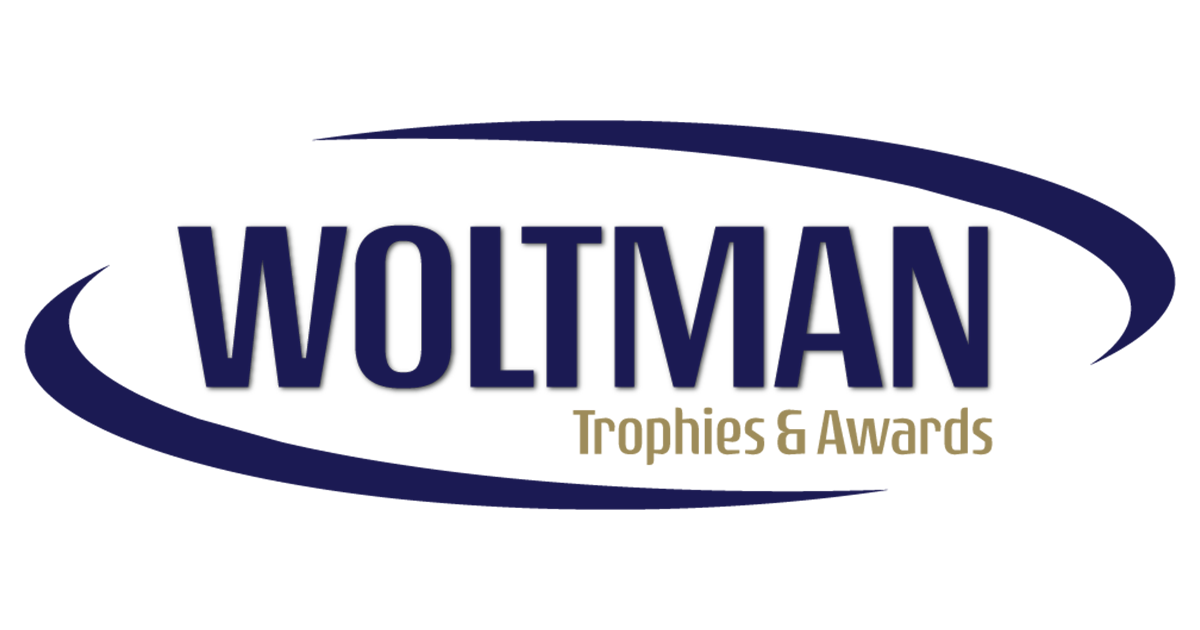A Guide to Employee Recognition
Employee recognition is pivotal in creating a positive work culture and boosting employee engagement. At Woltman Trophies, we understand the power of acknowledging employee achievements, and we specialize in creating plaques, trophies, and awards that serve as symbols of appreciation. In this guide, we will explore the significance of employee recognition and offer insights on implementing effective recognition programs to align with company values and goals.
Understanding Employee Recognition
Employee recognition is acknowledging and appreciating employees' contributions and accomplishments in the workplace. Beyond simple gestures, it is a powerful tool that fosters employee motivation, loyalty, and productivity. By recognizing and celebrating achievements, companies can create a culture of appreciation and inspire their workforce to perform at their best.
Types of Employee Recognition
Corporate Awards and Plaques
Corporate awards, such as plaques, trophies, and certificates, are significant in recognizing exceptional performance. These tangible symbols of appreciation are lasting reminders of employees' accomplishments and contributions. Woltman Trophies offers various customizable, high-quality awards that reflect your company's unique values and brand identity.
Feedback and Appreciation
Providing regular feedback and expressing appreciation are vital aspects of employee recognition. Constructive feedback helps employees grow and improve, while genuine appreciation reaffirms their value and boosts morale. By fostering a culture of open communication, managers can effectively recognize employees' efforts and guide their professional development.
Award Ceremonies and Events
Formal award ceremonies are an excellent way to celebrate achievements publicly and motivate employees. These events provide a platform to recognize outstanding performance, highlight success stories, and create a sense of pride within the organization. When organizing award ceremonies, consider factors such as venue selection, event planning, and engaging speakers to make the event memorable.
Corporate Trips and Incentives
Corporate trips and incentives offer unique rewards for exceptional performance. These experiences provide employees with opportunities for personal growth, team building, and relaxation outside the office environment. By offering corporate trips or incentives, companies can inspire and motivate employees to achieve their goals while fostering a sense of camaraderie and loyalty.
Implementing Effective Employee Recognition Programs
To ensure the success of employee recognition programs, consider the following best practices:
Establish Clear Criteria and Guidelines
Clearly define the criteria for recognition to ensure fairness and transparency. Establish guidelines outlining the process, eligibility, and frequency, providing a framework for managers and employees.
Create a Fair and Inclusive Recognition System
Implement a recognition system that values diversity and inclusivity. Consider recognizing accomplishments from various departments, roles, and levels to ensure everyone feels valued and appreciated.
Tailor Recognition Programs to Company Values and Culture
Align recognition efforts with your company's core values and culture. Incorporate specific behaviors and achievements that reflect your organization's unique identity, reinforcing and promoting those values.
Encourage Peer-to-Peer Recognition and Shout-Outs
Foster a culture of peer-to-peer recognition by encouraging employees to acknowledge and appreciate their colleagues' contributions. Implement shout-out programs, recognition boards, or digital platforms where employees can publicly recognize and celebrate each other's achievements.
Best Practices for Sustaining Employee Recognition Efforts
To maintain the effectiveness of employee recognition programs, consider the following:
Consistency and Frequency of Recognition
Recognition should be consistent and timely. Regularly acknowledge employees' accomplishments to keep the momentum and motivation high throughout the year.
Personalization and Individualization of Recognition
Tailor recognition efforts to the preferences and interests of individual employees. Personalized recognition shows their achievements are valued personally, fostering a stronger connection between employees and the organization.
Communicating the Impact of Recognition
Highlight the significance of recognition and its impact on individuals, teams, and the overall company. Share success stories, testimonials, and statistics to demonstrate the positive outcomes of recognition programs.
Monitoring and Evaluating Effectiveness
Continuously monitor and evaluate the effectiveness of your recognition programs. Collect feedback from employees and measure key performance indicators to identify areas of improvement and make necessary adjustments.

Work With Woltman Trophies
Employee recognition is a cornerstone of a thriving work environment, fostering motivation, engagement, and loyalty. At Woltman Trophies, we understand the importance of celebrating achievements and provide high-quality plaques, trophies, and awards to help companies recognize their employees' outstanding performance. By implementing effective recognition programs aligned with company values, businesses can create a culture of appreciation that drives success and inspires their workforce to reach new heights. Celebrate your employees' accomplishments with Woltman Trophies and watch your organization thrive.
Get in touch today!



